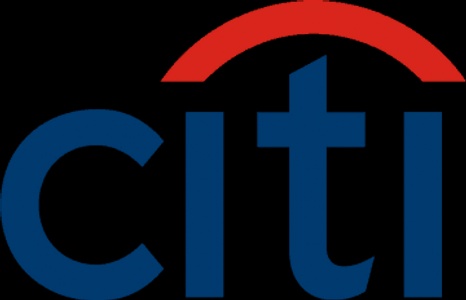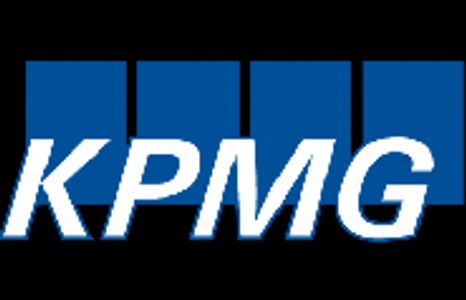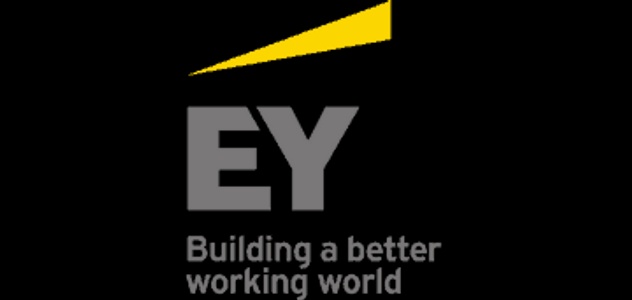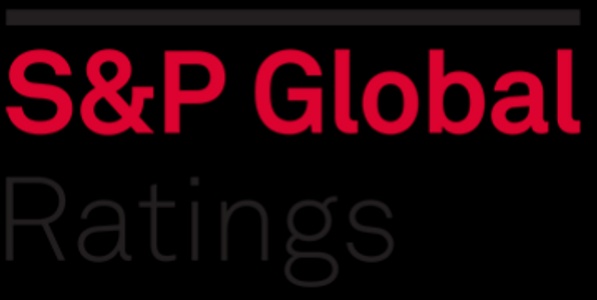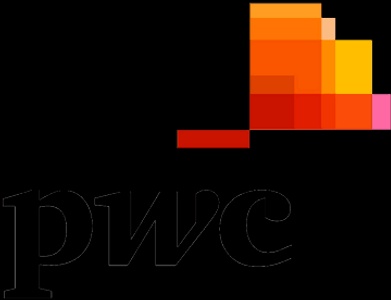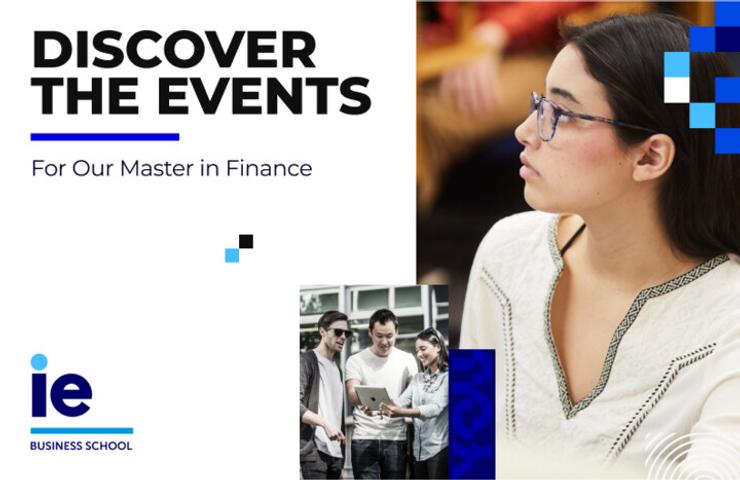
Master in Finance
Master in Finance
- Home
- The Programs
- Masters
- Master In Finance
STAND OUT AND BECOME THE NEXT FINANCE LEADER
STAND OUT AND BECOME THE NEXT FINANCE LEADER
IE Business School’s Master in Finance is built for ambitious professionals ready to push their limits, master complex markets and fast-track their growth in global finance. This program delves into the latest trends in finance—including sustainability, technology and AI—to sharpen your competitive edge for the digital future.
- Shape your career your way by specializing in one of three unique tracks: Investment Banking & Private Equity, Global Markets & Asset Management, or Real Estate Finance & Alternative Investments.
- Experience the intensity of working with real data, real tools, and real-world market pressures in our Trading Room.
- Sharpen your competitive edge with a broad portfolio of skill-building electives and choose from certifications in Finance Technologies & Artificial Intelligence or Sustainable Finance.
- Leverage our partnership with the CFA Institute and top global schools for exclusive resources and exchange opportunities.
- Secure the career opportunities you’re striving for with the resources, events and workshops provided by IE Talent & Careers.

WANT TO KNOW MORE?
BOOK A CALL WITH ME
CHAT WITH ME
ABOUT THE PROGRAM
ABOUT THE PROGRAM
WHO IS THE MASTER IN FINANCE RIGHT FOR?
WHO IS THE MASTER IN FINANCE RIGHT FOR?
IT'S FOR INDIVIDUALS WHO...
…are top performers with exceptional quantitative skills who thrive under pressure and new challenges. They are analytical thinkers, ambitious leaders, who stay up-to-date with the latest financial news, cutting-edge trends and are determined to make a name for themselves in the industry.
ARE LOOKING TO...
…leverage their ambition and drive to build a high-impact, future-facing career in finance and to gain practical experience, leadership skills and global network that set real players apart.
KEY AREAS
KEY AREAS
FUNDAMENTALS
CORPORATE FINANCE
GLOBAL MARKETS
TECHNOLOGY IN FINANCE
SPECIALIZATION TRACKS
Master in Finance Rankings IE
Master in Finance Rankings IE
Get to know more about IE Business School’s placement in international rankings.
- 6BEST BUSINESS SCHOOLS LISTWorldwideFORBES
- 12Master in Finance pre-experiencein the worldFinancial Times
REASONS TO STUDY THE MASTER IN FINANCE
REASONS TO STUDY THE MASTER IN FINANCE
- 01.
Build the profile top companies are looking for
Start strong with a rigorous core that tests your limits and sharpens your financial instincts. Then, tailor your path with specialization tracks and certifications that enrich your profile with skills top firms want.
- 02.
Launch your high-impact career, fast
This is a results-driven program that’s built for impact. You’ll be preparing to land top-tier roles in finance, having access to competitive opportunities and an optional internship that puts your skills to work in the real world.
- 03.
Gain a financial background, build like an entrepreneur
Tap into IE Business School’s entrepreneurial ecosystem and turn ideas into reality through the Venture Lab, M&A Lab and tailor-made electives and certifications. Go beyond the numbers and develop the connections, insights and opportunities to grow your career your way.
- 04.
Gain real-world experience, globally
Take your expertise around the world—to financial hubs like London and New York, and microfinance initiatives in Ghana. Work with top firms, tackle real project challenges and experience finance on a global scale. Go further with short exchanges at top institutions like London Business School, Frankfurt School and HKUST.
- 05.
Become part of a world-class, global network
Go global. Connect with high-performing peers, faculty and industry leaders from 160 countries worldwide. These are connections that open doors, spark deals and shape lifelong success.
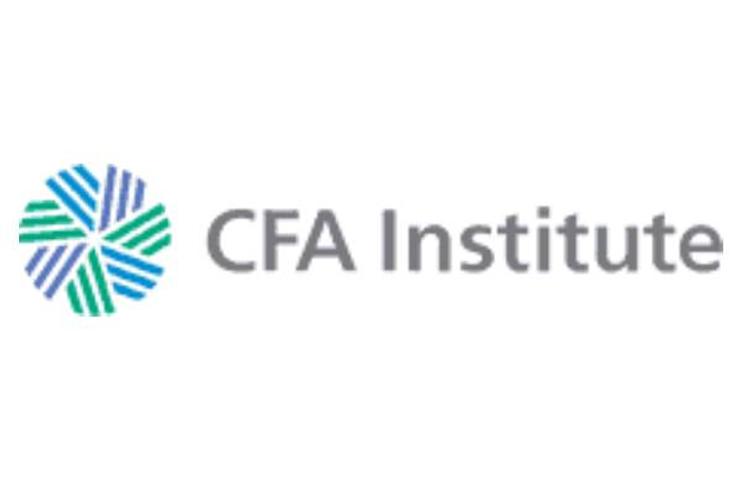
A CFA UNIVERSITY PARTNER
A CFA UNIVERSITY PARTNER
As an official CFA University Partner, IE Business School will prepare you to become a game-changing financial practitioner in today’s fast-paced environment. This recognition confirms our high standards, world-class faculty and industry relevance, placing our graduates at the forefront of global finance.
YOUR FUTURE NETWORK
YOUR FUTURE NETWORK
STUDENT PROFILE
STUDENT PROFILE
ACADEMIC BACKGROUND (%)
Business,EngineeringOthersEconomics & FinanceScienceLegalGeographic distribution (%)
EuropeSpainAsia PacificAfrica & Middle EastLatin AmericaNorth AmericaInternational Students (%)
International studentsSpanish students
- 2AVERAGE YEARS OF PROFESSIONAL EXPERIENCE
- 24AVERAGE AGE IN THE CLASSROOM
- 35NATIONALITIES IN CLASS
CAREER OUTCOMES
CAREER OUTCOMES
SECURE A ROLE THAT MATCHES YOUR AMBITION
SECURE A ROLE THAT MATCHES YOUR AMBITION
Career Opportunities
View all positions
OUR GRADUATES ARE TRANSFORMING THE FINANCE WORLD
OUR GRADUATES ARE TRANSFORMING THE FINANCE WORLD
From global investment banks to top consulting firms, our alumni thrive in some of the world’s most influential organizations. Leverage our Talent & Careers team's connections with leading employers and personalize your career path right to the top of the industry.
MASTER IN FINANCE CAREER OUTCOMES
MASTER IN FINANCE CAREER OUTCOMES
SECTORS WHERE OUR GRADUATES WORK
Financial ServicesOthersConsultingIndustrialTechnologyREGIONS WHERE OUR GRADUATES WORK
EuropeSpainAsia PacificAfrica & Middle EastLatin America
- 95OF JOB SEEKERS FOUND A JOB WITHIN 3 MONTHS
- 73OF OUR GRADUATES ARE WORKING IN FINANCE ROLES
CAREER REPORT
CAREER REPORT
Discover where the Master in Finance can take you. Gain exclusive insights and explore the career paths our alumni are taking to help you plan your next step.
FUEL YOUR CAREER WITH TOP-TIER OPPORTUNITIES
FUEL YOUR CAREER WITH TOP-TIER OPPORTUNITIES
Dive into real deals, real market events and real connections with top talent in the field. Every activity is designed to sharpen your edge and get you closer to the next best you. Discover the best opportunities driven by IE Talent & Careers and IE Business School:
SECTOR-SPECIFIC EVENTS
Meet top professionals and recruiters and learn what it takes to break into the industry’s most in-demand segments.
- Investment Banking Day
- Asset Management Day
- Private Equity Day
NEXT CAREER MOVES
Get hands-on exposure, build your network and take charge of your professional trajectory.
- MBA Talent Day
- Careers Forum
- Monthly Sessions with IE Talent & Careers
- Mentor–Mentee Program
- Assessment Center Simulation
CFA Research Challenge
Hands-on initiative.
Put your skills to the test in one of the world’s most prestigious equity research competitions.
M&A Lab
Lab
Simulate live transactions, deepen your technical nous and master deal-making with peers and mentors.
Venture Lab
Lab
Turn ideas into innovative ventures, then pitch them in front of investors on Venture Day.
DISCOVER DIVERSE CAREER PATHS
DISCOVER DIVERSE CAREER PATHS
INVESTMENT BANKING & PRIVATE EQUITY
Navigate the fast-paced world of investing, mastering the skills to seamlessly transition into decision-making roles in underwriting, private equity, IPOs and M&As, banking and corporate finance.
GLOBAL MARKETS: SALES & TRADING
Take a leading role in the high-stakes world of global markets, driving transactions and strategies across fixed income, currency and commodities, equity, derivatives, structured products, high-frequency trading and much more.
ASSET MANAGEMENT
Shape financial futures by managing funds and portfolios that grow client values across private banking, portfolio management, institutional investing and ultra-high-net-worth wealth management.
REAL ESTATE AND ALTERNATIVE INVESTMENTS
Capitalize on emerging opportunities in real estate, venture capital, derivatives, commodities, infrastructure, renewables, alternative assets and more, to build future-ready investment strategies.
FINANCIAL ANALYTICS AND DIGITAL FINANCE (FINTECH)
Make the next big waves in finance, applying innovations like cloud computing, AI, big data, cryptocurrencies and blockchain techonologies to transform how markets operate and how value is created.
CONSULTING
Drive strategic businesses at the intersection of finance and business, shape the financial landscape advising companies on M&A, restructuring, operational optimization and business transformation in a dynamic global marketplace.
STUDENT EXPERIENCE
STUDENT EXPERIENCE
LONDON EXPERIENCE: WHERE LEADING TALENT MEETS GLOBAL FINANCE
An unmatched opportunity for outstanding talents. As part of our Master in Finance, participants get to travel to London, a leading financial hub, visiting top firms and gaining firsthand tips from industry leaders. It’s your chance to grow your network and boost your profile.
TRADING ROOM: ENHANCE YOUR SKILLS AND EXPERIENCE THE MARKET IN REAL TIME
Enter our high-intensity trading floor, powered by Bloomberg terminals. Experience real-time market simulations and build the market know-how that sets top financial performers apart.
Empowered women in finance
Empowered women in finance
Alumni and current students from IE University discuss what it's like to be a woman in finance, how the sector is moving toward gender diversity, and how IE Talent & Careers team helped them launch their careers.
YOUR CAREER, YOUR MOVE
YOUR CAREER, YOUR MOVE
Our Master in Finance students don’t wait for opportunity; they create it. Our current students in the Master in Finance program are making remarkable strides in their careers, securing prestigious internships and positions at leading global companies.
Learn more about their journeys here:
OUR FACULTY ARE HERE TO GUIDE YOU
OUR FACULTY ARE HERE TO GUIDE YOU
LEARN FROM LEADING PROFESSIONALs
LEARN FROM LEADING PROFESSIONALs
Our faculty are industry leaders—former traders, analysts and executives with proven track records across the financial world. They don’t just teach theory, but challenge you to think sharper, act faster and perform at the level the market demands.
MAKE IT A DUAL DEGREE - DOUBLE YOUR IMPACT
MAKE IT A DUAL DEGREE - DOUBLE YOUR IMPACT
Pursue two disciplines while gaining insight from different perspectives and ways of thinking. You'll cover the contents of two master's programs—and graduate with two diplomas—ensuring in-depth expertise that maximizes your value in the job market.
Experience Madrid
Experience Madrid
Madrid is one of the most popular cities in Europe for Gen Z travelers and one of the most student-friendly cities in Spain, with a great, affordable public transport network, cool underground culture and fabulous nightlife. But Spain’s capital is also home to international companies of stature, including Google, Microsoft and Apple, creating a myriad of opportunities for professional experience.
Madrid is in a league of its own and provides the perfect backdrop for rounding off a unique educational experience.

Discover related programs to the Master in Finance
Discover related programs to the Master in Finance
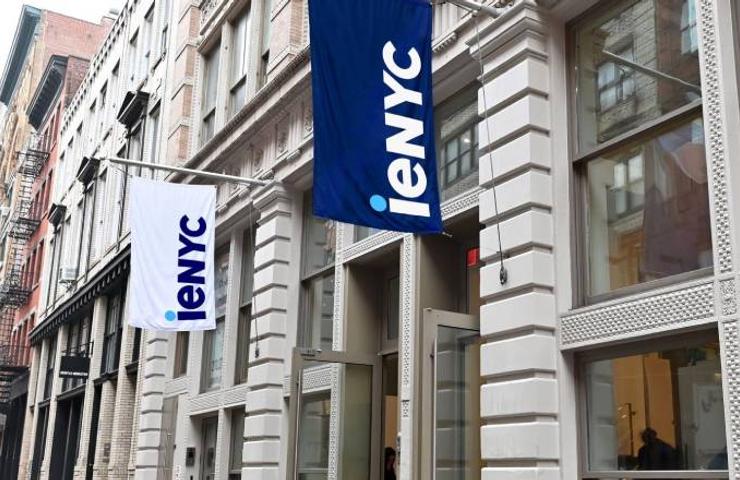
INTERESTED IN STUDYING FINANCE IN NEW YORK?
INTERESTED IN STUDYING FINANCE IN NEW YORK?
Check out the MS in Finance at our partner institution IENYC, focused on building a deep understanding of global financial markets, investment analysis, financial modeling, and risk management to advance your career in finance.
The ultimate guide
The ultimate guide
Everything you need to know about our Master in Finance
DISCOVER OUR BLOG!
DISCOVER OUR BLOG!
Are you ready to learn what it means to be part of IE University? Discover our student life, explore the career paths ahead and find out all you need to know about your program from those who know it best.
Uncover the IE experience.
FREQUENTLY ASKED QUESTIONS
FREQUENTLY ASKED QUESTIONS
HOW LONG IS THE MASTER IN FINANCE?
The Master in Finance at IE Business School is a full-time, 10-month program that takes place in Madrid, with intakes in both September and April. It is designed as an intensive journey that combines advanced technical training, practical learning experiences and direct exposure to the financial industry. The program’s fast pace allows students to quickly transition into highly competitive roles in top firms across the globe.
CAN YOU PERSONALIZE YOUR MASTER IN FINANCE?
This program offers four unique specializations: Investment Banking & Private Equity; Global Markets & Asset Management; Real Estate Finance & Alternative Investments; and Financial Analytics & Digital Finance. There are also several elective modules covering areas such as private equity, fintech and digital finance, derivatives and hedge funds, among others.
HOW CAN I GET A MASTER'S DEGREE IN FINANCE?
To earn a Master in Finance at IE Business School, you need to complete the admissions process, which includes an online application, supporting documents and an admissions interview. Once admitted, you will study advanced financial theory, practical applications and industry-driven challenges. After successfully completing all academic requirements, you will graduate with a master’s degree that prepares you for careers in investment banking, asset management, consulting or corporate finance.
IS A MASTER'S DEGREE IN FINANCE WORTHWHILE?
Yes. The Master in Finance is highly valuable for anyone seeking a career in banking, asset management, consulting or financial technology. At IE Business School, the program offers specialized knowledge, networking opportunities and access to leading recruiters. It significantly increases graduates' competitiveness in the job market, particularly for roles that require advanced technical skills and global perspectives, making it a strong return on investment for ambitious professionals.
DOES THE MASTER IN FINANCE REQUIRE WORK EXPERIENCE?
The Master in Finance at IE Business School is designed for both recent graduates and early-career professionals. Work experience is not a requirement, though it can be beneficial. The program offers pathways and electives that allow students to tailor their learning depending on their background. Whether you come directly from university or with some professional experience, you will gain the skills needed for success in global finance.
WHAT DOES THE MASTER IN FINANCE INVOLVE?
The Master in Finance is a one-year program that takes place in the heart of Madrid. You can enhance your learning with optional trips to various international destinations, including Ghana, Frankfurt, London and New York. With intakes in April and September, this full-time, in-person program is delivered entirely in English.
WHAT WILL I LEARN IN THE MASTER IN FINANCE?
Students of the Master in Finance study a mix of core courses, program add-ons, electives and four distinct specialization tracks: Investment Banking & Private Equity; Global Markets & Asset Management; Real Estate Finance & Alternative Investments; and Financial Analytics & Digital Finance.
The final project is as flexible as the program, allowing you to showcase your expertise through an academic research project, a collaborative project with a real company, a case study, a valuation report, a CFA research challenge, a portfolio management practicum, or a microfinance project in Ghana.
CAN I TAKE A SEMESTER TO STUDY ABROAD DURING THE MASTER IN FINANCE?
IE Business School has ongoing collaborations with leading business schools around the world. These include London Business School and Frankfurt School of Finance and Management.
Through these partnerships, you can spend an extended period in an institution of your choice to learn, take part in company visits and network with local recruiters to help boost your profile and international network.
WHAT IS BETTER: A CFA OR A MASTER'S IN FINANCE?
The CFA and the Master in Finance serve different purposes. The CFA is a widely-recognized self-study certification for finance professionals focused on investment management. The Master in Finance at IE Business School, on the other hand, provides a broader foundation, covering corporate finance, capital markets, quantitative methods and leadership. Many professionals pursue both, with the master’s degree giving an academic and networking advantage alongside the CFA’s technical focus.




